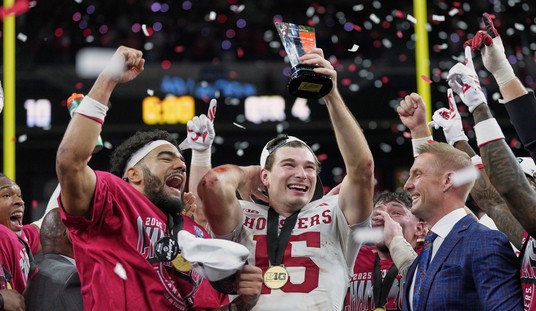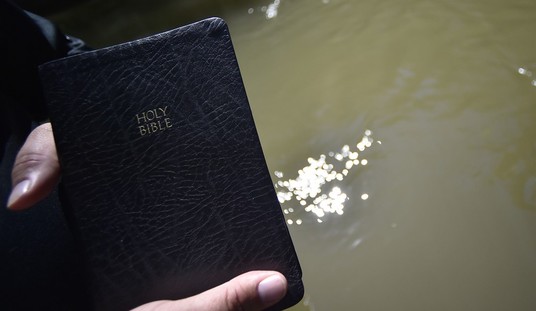After months of negotiations, the Iraqis agreed on a new government. Just 24 hours later, the deal might have already unraveled. Members of Iyad Allawi’s Iraqiya bloc walked out of parliament after failing to reach an agreement on detainee and political issues. Basically, Allawi’s Sunni/secular Shi’a party wants Prime Minister Nouri al-Maliki to release some Sunni prisoners (read: former insurgents) and allow certain ex-Ba’athists to reenter politics. And Maliki, presumably, is balking.
So here is what we know: under the terms of the deal, Maliki will almost certainly retain the premiership. Jalal Talabani, the Kurdish leader, will retain the ceremonial post of the Iraqi presidency. And a new cabinet-type body called the National Council for Strategic Policies will be created and headed by Allawi. This “council,” reportedly, would serve as a counterweight to the powers of the prime minister — sort of like having Newt Gingrich as Barack Obama’s chief of staff. Nevertheless, the extent of the authority of this new bureaucratic post remains in dispute, and must be agreed upon under the Iraqi constitution (doesn’t that sound oddly remarkable?).
Iyad Allawi was the preferred candidate for the United States. His political bloc is much more secular and non-sectarian than Maliki’s party. Allawi actually won more seats than Maliki in the March elections, but was unable to assemble the requisite coalition for the premiership. Today, Allawi is sounding the alarm. “This is a new dictatorship that is happening in Iraq,” he told CNN. “It’s becoming humiliating, it’s becoming very dictatorial, and they don’t want to respect those people who have other views than them.”
There is no doubt that Allawi would have been better than Maliki. And there’s no brotherhood or sentimentality anymore for a guy like Maliki. But there’s no reason to become hysterical about what’s going on in Iraqi politics. All of the fears about contemporary Iraq must be put into context: a) these fears pale in comparison to Saddamist Iraq in ’03 — and certainly a Saddam or Uday/Quday-led Iraq today; b) regional factors like Iran should override all of our concerns about Iraq.
Will Maliki try to develop atomic bombs? Will he attempt to assassinate a former American head of state? Will he use chemical weapons on the Kurds? Will he lob missiles at Israel and Jordan, or invade Kuwait, or threaten to conquer Saudi Arabia? Will he support terrorist organizations that attack Americans? Will he offer sanctuary to Osama bin Laden, as the 9/11 Commission states Saddam Hussein did in 1998?
Additionally, the narrative that Maliki is an “Iranian stooge” is simplistic and overplayed. Just two years ago, Maliki militarily crushed fellow Shi’ite and Iranian proxy Muqtada al-Sadr. He’s proven his independence already. The question is not whether Maliki is overtly loyal to Tehran — he isn’t — but whether he feels personally threatened by the Iranians, and is therefore coerced into a submissive role. This is happening right now, and is likely to get worse if we do not position ourselves as a bulwark against the mullahs.
The United States should worry less about Iraq’s internal politics and more about Iran’s regional belligerence. If we protect Iraqi freedom from Iran, the Iraqis will figure the rest out on their own accord. After all, for all the mess in Iraq’s politics, they are the only state in the region that gets to have such messiness and politicking. This is what Arab democracy, for now, looks like. There are still security challenges throughout Iraq (especially for Christians). But Americans should be confident that this will work out.
We need not place all of our trust in Iraq’s leadership, either. Should Maliki prove to be too sectarian or too Iran-friendly in his second term, the Iraqis will respond overwhelmingly in favor of freedom at the ballot box. If the Iraqis have proved one thing since 2003, it is that they are willing to fight and die for freedom and peace. Tens of thousands of Iraqi soldiers have lost their lives alongside U.S. troops, countering Iranian-backed insurgents and al-Qaeda-linked terrorists.
In a perfect world, the enlightened Mithal al-Alusi would be Iraq’s most popular politician. But we should remember that true liberal democracy takes time and requires things other than a leader ostensibly friendly with the United States. After World War II, West Germany still had socialist parties. After the Korean War in 1953, it took South Korea until the 1980s to transform from an authoritarian state to a democracy. These things take time, and comparatively, the new Iraq is ahead of the curve.
It’s up to them now to secure their country. We’ve passed that baton off. We can help the Iraqis continue to liberalize over time by developing a relationship with their private sector. We can work with individual Iraqi businesses and provincial leaders. We can foster new markets, if we are innovative. They have a whole lot of oil and the right to vote — and that’s two legs up.









Join the conversation as a VIP Member